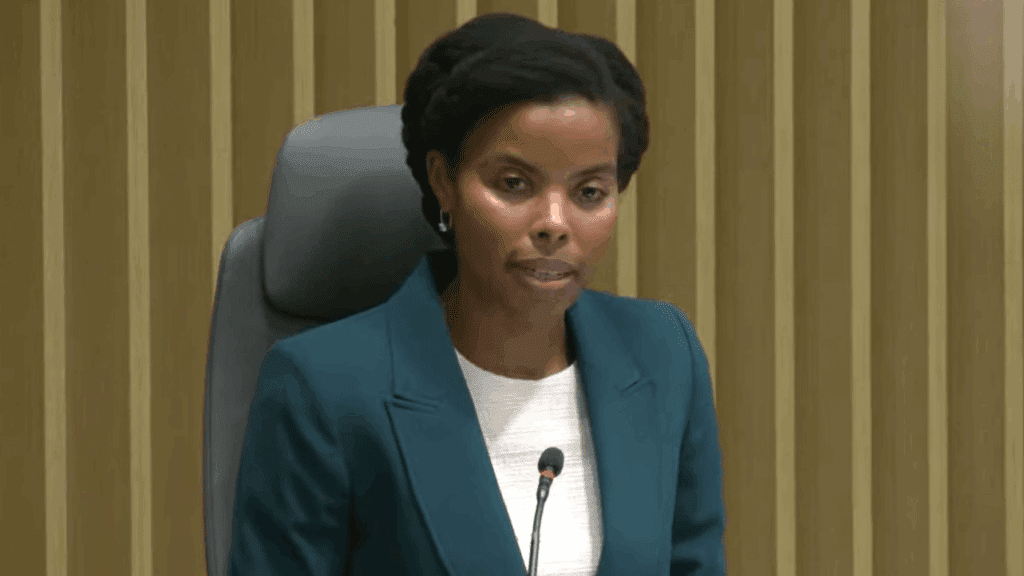FCC Clears the Way for Faster Wi-Fi in the 6 GHz Band
Randy Sukow
|
More than one of the Commissioners at today’s monthly FCC agenda meeting noted that Wi-Fi technology is having an important effect on people’s everyday lives as they remain in their homes during the COVID-19 pandemic. People are using unlicensed wireless links in the 2.4 GHz and 5 GHz bands to access their home internet service in record numbers, and where they do not have home internet service, they get in their cars and park near a free outdoor Wi-Fi hotspots. So it is especially significant that the FCC today unanimously adopted a Report and Order authorizing the use of 1,200 megahertz of spectrum in the 6 GHz band (5.925–7.125 GHz) for a new class of faster WiFi devices.
“Today we take a bold step to increase the supply of unlicensed spectrum. We’re making the entire 6 GHz band, a massive 1,200 MHz test bed for innovators and innovation, available for unlicensed use,” said FCC Chairman Ajit Pai. “By doing this we are effectively increasing the amount of mid-band spectrum available for Wi-Fi by almost a factor of five. This will be a huge benefit to consumers and innovators across the nation.”
Under the order, Wi-Fi users will share the 6 GHz band with several current licensed users, including electric utilities. The rules governing Wi-Fi and other unlicensed devices requires them to operate at very low powers and to protect incumbent licensees. A Further Notice of Proposed Rulemaking the Commission also passed today suggests possibly amending the rules to increase the transmit power on some indoor Wi-Fi devices that would be unlikely to interfere with licensees.
“I want to recognize that with this action we make progress on the need to identify additional bands for unlicensed use under the Ray Baum Act,” said Commissioner Jessica Rosenworcel. “With this decision on unlicensed spectrum, we do well by the law, we add more permission to use wireless airwaves to the economy and we expand the democratizing force of having more Wi-Fi in more places.”
- 24x7 Monitoring (1)
- 5G (35)
- About NRTC (3)
- Address Data (2)
- AI (3)
- AMI (4)
- Annual Meeting (14)
- Armada Power (4)
- ARPU (7)
- Artificial Intelligence (17)
- AutoGrid (6)
- Axin Global (2)
- Basketball Picks (4)
- BEAD (34)
- Benchmarking (10)
- Board of Directors (7)
- Brand Camp (1)
- Brand Identity (1)
- Branding (10)
- Broadband (147)
- Broadband Data Collection (6)
- Broadband Funding (133)
- Broadband Labels (2)
- Broadband Mapping (36)
- Broadband Policy (49)
- Broadband Technology (11)
- CFC (3)
- Connected Home (1)
- Contest (2)
- Cooperative (1)
- Cross Selling (1)
- CrowdFiber (38)
- Customer Success (6)
- CX (1)
- Cybersecurity (47)
- Data Centers (3)
- DER (1)
- DERMS (2)
- Direct Mail (1)
- DIRECTV (3)
- Electric (2)
- Email (3)
- Employee Experience (1)
- ENGIE (3)
- Ericsson (1)
- FCC (84)
- fiber (9)
- Football Picks (3)
- Funding (70)
- GAO (2)
- General (42)
- Governance Risk Complianc (1)
- GRC (1)
- Grid Operations (1)
- GSO (3)
- Help Desk (8)
- Hiring (1)
- HR (1)
- Infrastructure Investment and Jobs Act (3)
- internet of things (10)
- IoT (11)
- Itron (5)
- Load Management (2)
- Managed Services (67)
- March Mania (3)
- Marketing (23)
- Marketing Collateral (6)
- Member & Industry Relations (4)
- Member Milestone (2)
- Metering (1)
- microgrid (4)
- Mobile (23)
- Mobile Solutions (20)
- MVNO (4)
- MxDR (1)
- MyBundle.TV (4)
- National Cybersecurity Awareness Month (10)
- NCSAM (1)
- net neutrality (5)
- New ERA (3)
- NIST CSF (3)
- NOC Management (1)
- NOC Monitoring (1)
- NRECA (17)
- NRTC (63)
- NRTC Pivot (2)
- NTCA (28)
- NTIA (33)
- Operational Intelligence (4)
- OpIntel (1)
- Partnerships (1)
- Pick-It (8)
- Pivot (31)
- Planning (1)
- pLTE (9)
- powersecure (3)
- PowerSecure Load Management (2)
- PowerXchange (3)
- precision ag (4)
- Pricing (1)
- Print Campaigns (1)
- Private LTE (2)
- privateLTE (2)
- Promotions (6)
- Q&A (7)
- Quarterly Marketing Webinar (8)
- RDOF (25)
- ReConnect (7)
- Research (2)
- Revenue Generation (1)
- RTIME (1)
- Rural Electric (6)
- Sales (1)
- Satellite Broadband (15)
- Search Engine Optimization (3)
- SEO (2)
- SilverSky (5)
- Sling TV (1)
- Smart Grid (96)
- Solar (11)
- Storage (5)
- streaming (2)
- Streaming Video (8)
- Supply Chain (3)
- Tech Home (7)
- TechAdvantage (7)
- TechConnect (3)
- TechShield (8)
- TechShield Professional (3)
- Training (6)
- TrustMAPP (1)
- Universal Service (9)
- USDA (8)
- USDA New ERA (1)
- USF (7)
- USTelecom (5)
- Viasat (2)
- Video (4)
- Video Solutions (8)
- Water Heater (2)
- Webinars (6)
- Whitepaper (1)
- WI-FI (1)
- wireless (5)
- WTA (1)
- Zones (1)


